Taiwan (Taipei)
Plastic bottle pavilions and urban-mined glasses, ‘Polli-Brick’ and ‘Eco-Morph’ and the waste that it slashes, upcycled film theatres and recycled plane wings, these are a few of my favourite things… made from trash.
Designer, architect and self-professed “do-er” Arthur Huang believes it’s wise to minimise. His Taiwan-based ‘closed-loop’ firm Miniwiz builds its business out of upcycling creations, such as iconic government buildings, prestigious retail interiors, industrial-scale recycling, major marketing installations and high performance eyewear and furniture.
“We believe that everything can be made out of trash.” – Arthur Huang
In 2005, the energetic Arthur took the profits from his first breakthrough sustainable product line (solar and wind powered charging devices called HYmini) to self-fund Miniwiz in Taipei, Taiwan. He originally saw it as “anger-management therapy” for the things in the world that are not very fair, such as the treatment of people, the distribution of materials and wealth.
“Trash is an abundant and highly valuable source of premium grade plastics, metals and fibres, all perfectly good materials to be used and reused time and time again, he tells us, “and with its supply rising by 70% each year, the cost-efficiency of trash as a scalable resource is already hugely viable.”
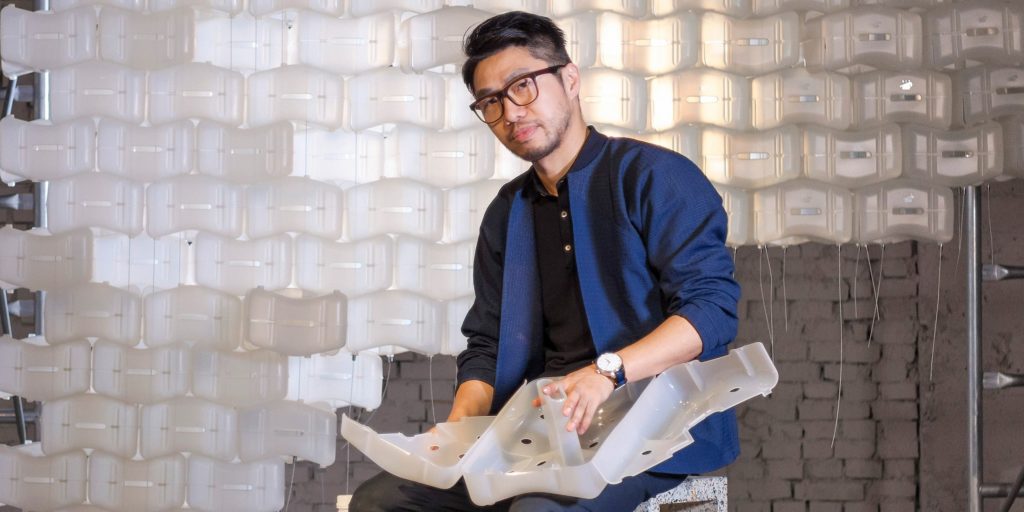
Arthur Huang creates a sneaker packaging revolution for Nike
Since then, his engineering company has turned human-made pollution into a resource – particularly plastic, electronic, food, agricultural, packaging and automotive waste – by making materials that are 100% recycled.
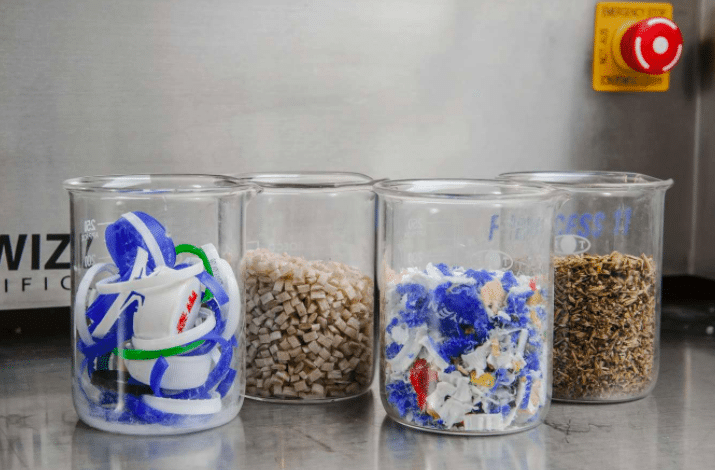
“TRASHLAB is the place we cook up material miracles every single day, exploring hundreds of recipes before finding the highest performance outcomes. Inventing new machinery, imagining new techniques and molecular treatments are all part of our daily routine reflecting our tireless commitment to our goal-creatina truly circular economy. And most importantly, it’s all with zero toxicity and can be re-recycled again.”
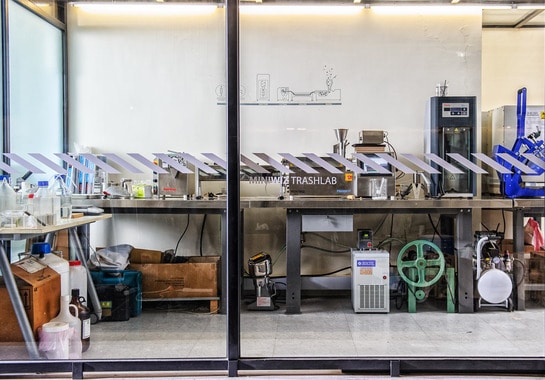
As people like new stuff, Miniwiz focuses on making and marketing attractive upcycled DIY products that people actually want to buy. While Miniwiz re-engineers waste into products like iPhone covers made from rice husk, wine bottle carriers made from recycled motherboard casings and sunglasses made from recycled CDs, its main focus is using waste plastics to improve the carbon footprint of buildings – as they are responsible for 40% of global greenhouse gas emissions.
Its high-end recycled plastic products range from a curtain wall system made from 100% recycled PET, a composite made from recycled polymers and agricultural waste and a fibre made with 100% recycled PET and silicon dioxide from rice husks. It has even built an e-waste recycling plant out of recycled materials. But one of Miniwiz’s most high profile – and most futuristic – projects is the nine-story-high EcoARK Pavilion, a major showcase of sustainable engineering, unveiled at the 2010 Taipei International Flora Exposition. Built out of 1.5 million recycled plastic bottles, its interlocking honeycomb-like POLLI-Brick system avoided the need for any chemical bonding agents.
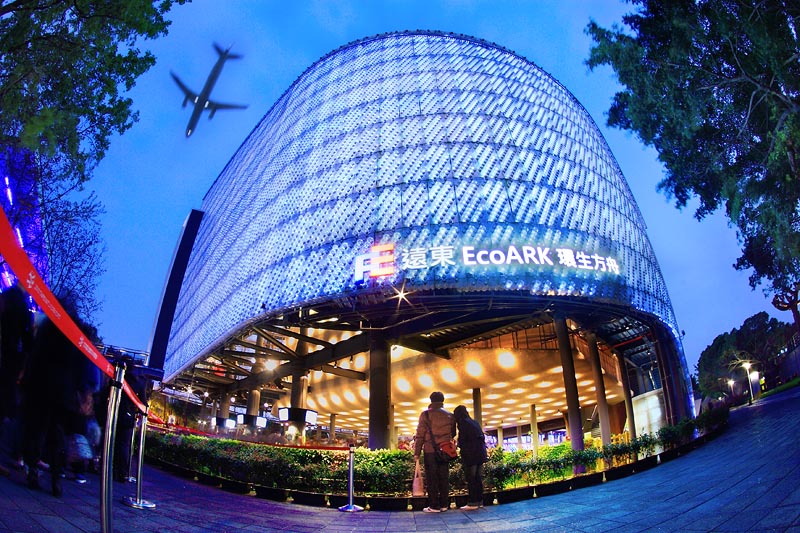
EcoARK Pavilion
While many still take a lot of convincing that waste plastic is a viable solution, the world’s major forward-thinking brands like Nike are also adopting the concept of waste plastic as a viable manufacturing solution, with Miniwiz counting Philip Morris, Coca-Cola and Starwood hotels amongst its clients.
“We’ve been able to prove time and time again that materials from trash can outperform the virgin materials our society has traditionally depended upon.”
Since COVID-19, Miniwiz invested heavily into R&D to develop products that combat bacteria and viruses. It launched the first modular ward concept in a partnership with the Center For Innovation at Fu Jen Catholic University Hospital. The negatively pressurised clean rooms are designed specifically to allow hospitals to control the risk of biocontamination or particle contamination. Miniwiz’s signature PET wall panels, nano coated with recycled aluminum, coupled with UV self-cleaning system, drastically reduces 99.9% of bacteria count, while repelling viruses.
“Sustainable beyond concept delivery, Miniwiz will maximise the use of post-consumer single-use material including aluminium cans and PET bottles,” said the studio. “These materials will then be upcycled into medical-grade antiviral/bacterial materials.”
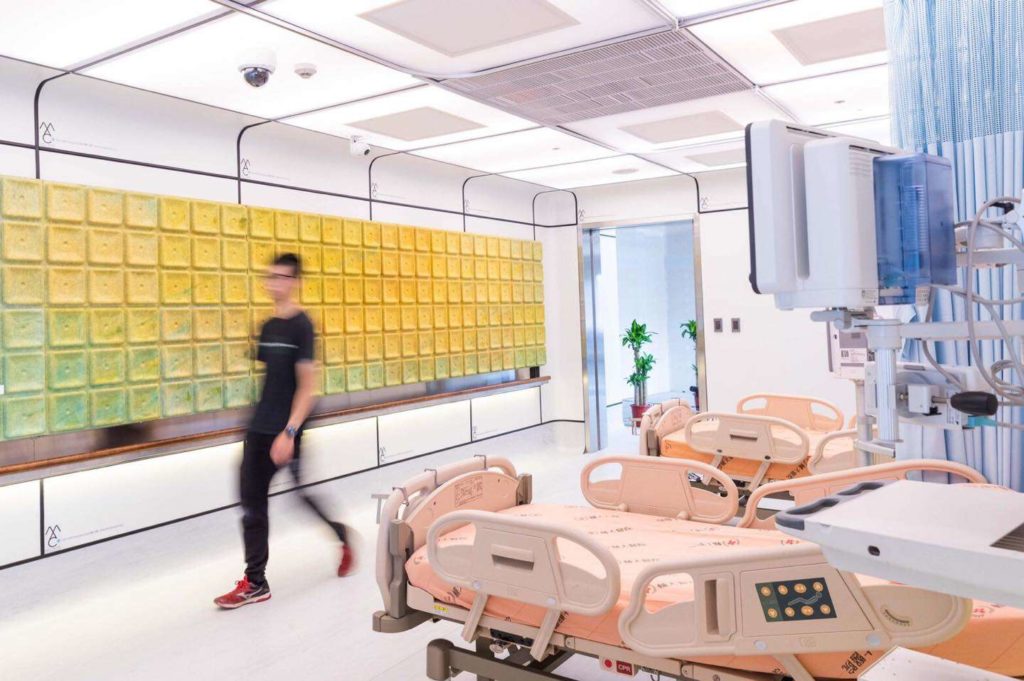
Once nicknamed ‘Garbage Island’, Taiwan now boasts one of the highest recycling rates in the world. So far, much of the work mined from the world’s waste done by Miniwiz has been in the manufacturing powerhouse that is Taiwan, but it wants to replicate similar recycling networks in China and the US. The final goal is to be able to substitute any virgin material. “We believe that everything can be made out of trash,” the company asserts.
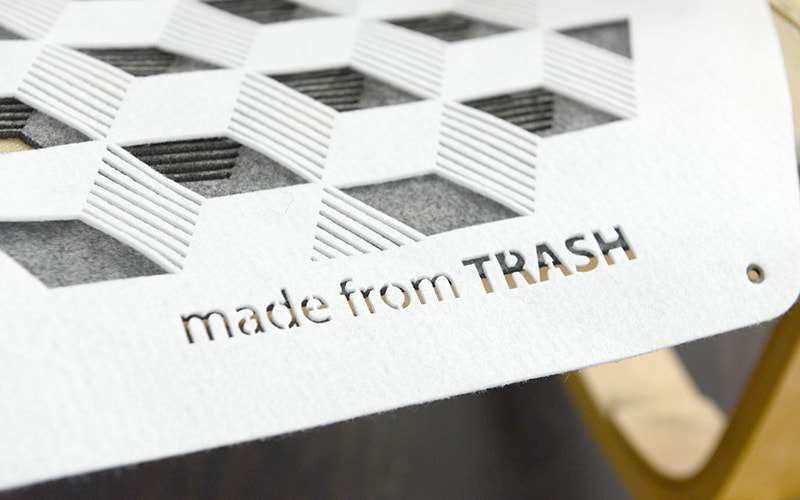
AtlasAction: Learn more about closing the circle on waste.
Project leader
Arthur Huang and Jarvis Liu, Co-Founders, Miniwiz
Support the Atlas
We want the Atlas of the Future media platform and our event to be available to everybody, everywhere for free – always. Fancy helping us spread stories of hope and optimism to create a better tomorrow? For those able, we'd be grateful for any donation.
- Please support the Atlas here
- Thank you!
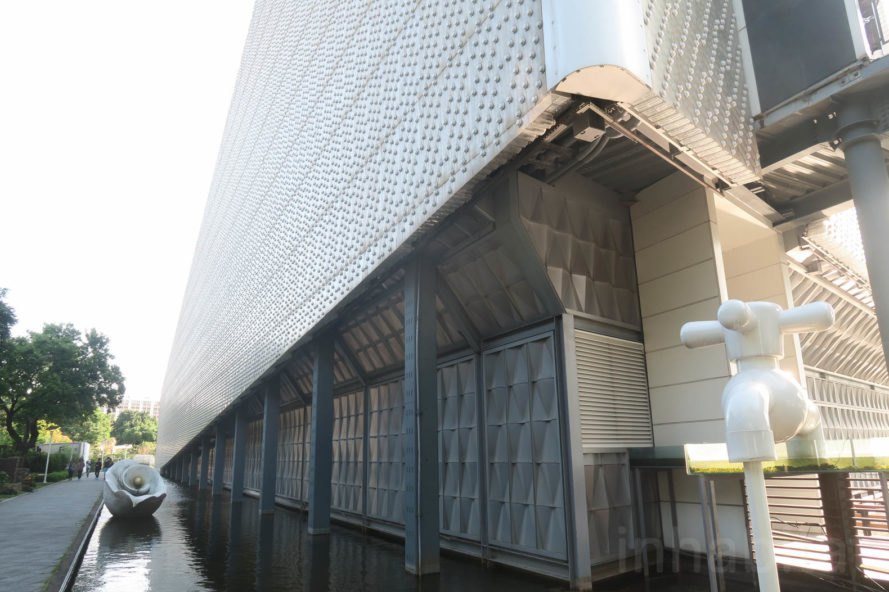
EcoARK Pavilion

